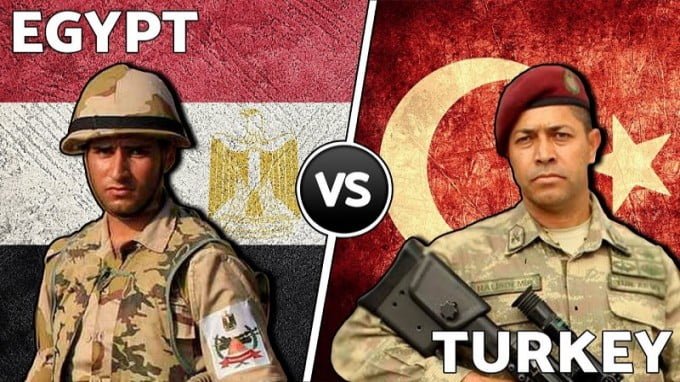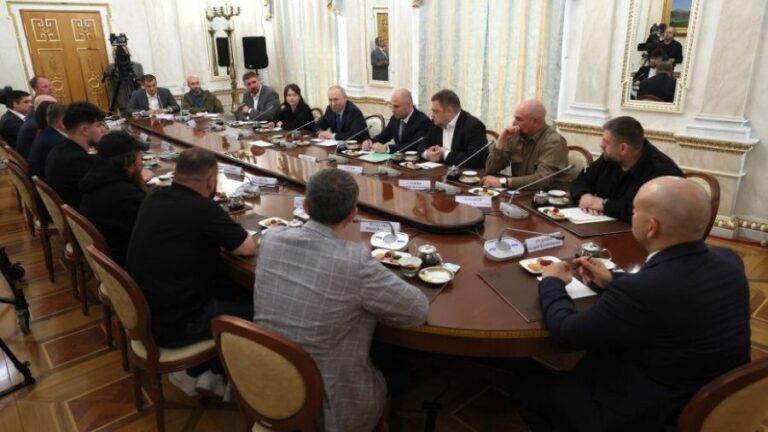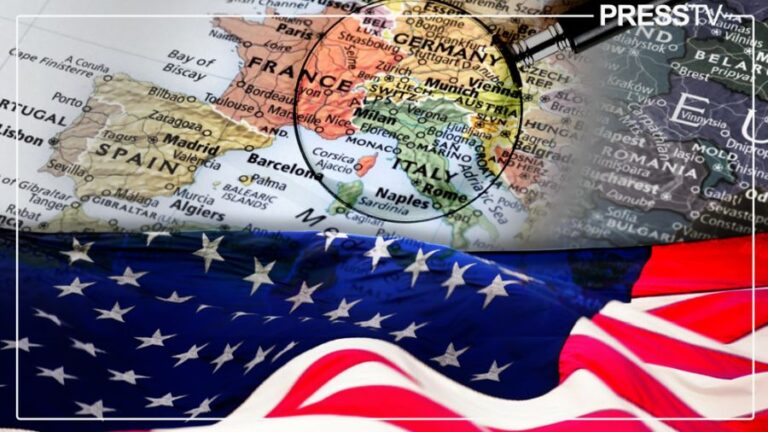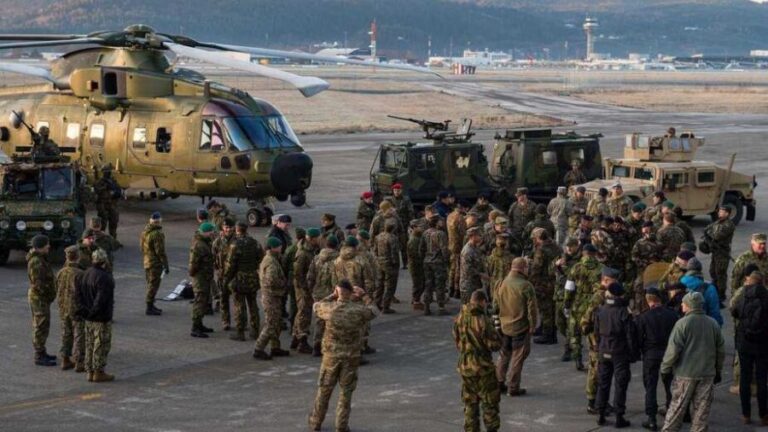There Are Serious Limitations to an Egyptian Military Intervention in Libya
The Egyptian Parliament’s approval of their military’s possible deployment to Libya following the request for such support by the war-torn country’s largely unrecognized eastern-based parliament in Tobruk has sparked heated discussions about Cairo leading the GCC+’s proxy war against Turkey in that theater, but there are very serious limitations that the Egyptian military would inevitably face in that scenario which greatly reduce the chances of it achieving a full victory, though its driving motivation for intervening might only be to create a stalemate for strategic reasons even if that outcome is far from certain.
The Next Phase Of The Libyan Civil War
Many in the Mediterranean region are wondering whether Egypt will go through with its threatened military intervention in Libya if the UN-recognized and Turkish-backed Government of National Accord (GNA) attempts to capture the coastal city of Sirte and the oil fields beyond. The war-torn country’s largely unrecognized eastern-based parliament in Tobruk recently requested Cairo’s military support in fending off such an attack, which the Egyptian Parliament just approved earlier this week. As it stands, Egypt might formally intervene at any moment as the leading force in support of the GCC’s proxy war against Turkey in that theater, though it’ll inevitably face some very serious limitations in the event that it does. Instead of achieving a full victory, it might only be able to reach a stalemate even under the best-case scenario, though that might be exactly what it’s aiming for to begin with even if such an outcome is far from certain.
The GCC’s Goals
Egypt’s primary objective is to prevent the Muslim Brotherhood-influenced GNA from defeating Cairo and its GCC backers’ proxy General Haftar, who’s also reportedly supported by “Israel” and Russian mercenaries. The world’s most populous Arab nation fears that the GNA’s victory in the latest stage of the Libyan Civil War would creating an enduring national security threat that could embolden its domestic Muslim Brotherhood forces into staging another Color Revolution coup attempt against its latest secular strongman, General Sisi, just like the one that overthrew his predecessor President Mubarak during the opening stages of the theater-wide Color Revolution wave now known as the so-called “Arab Spring“. Sisi’s GCC backers regard him as their bulwark for physically stopping the spread of this ideology further eastward and therefore have every reason to support him to the end, including by providing his armed forces with everything they’d need if they intervene in Libya.
The Triumphalist Anti-Turkish Infowar Narrative
The problem, however, is that the Egyptian military isn’t as strong as it’s portrayed by the Gulf’s Mainstream Media and even the majority of the Alt-Media Community, both of which despise the Muslim Brotherhood just as much as they do modern-day Turkey, especially President Erdogan who’s ideologically aligned with the group. The premature triumphalist narratives that form the core of their information warfare narratives as of late should already make any objective observer suspicious about the Egyptian military’s real capabilities, but there are more reasons than just a gut feeling. As unbelievable as it may sound, Egypt has been unable to defeat ISIS in the Sinai, and it also hasn’t had any war-fighting experience in decades. Its armed forces might look impressive on paper in terms of their numbers and the cost of their equipment, but they might very well turn out to be “paper tigers”. Anti-Turkish media is loath to acknowledge any of this, which raises concern.
War-Fighting Facts
Other facts that they usually don’t mention are that the Turkish Armed Forces have plenty of recent war-fighting experience against the PKK at home, in Iraq, and in Syria, as well the latest lessons that they’re actively learning in Libya at the moment following their formal intervention there at the request of the country’s UN-recognized government. Up until earlier this week, Egypt probably wouldn’t have seriously considered intervening in Libya had it not reached an unexpected understanding with nearby Ethiopia over the latter’s Grand Renaissance Dam, the filling of which is regarded by Cairo as a national security threat. This development relieved pressure from Egypt’s southern flank and allowed its military to focus exclusively on Libya if it so chooses, though that in and of itself also speaks to its comparative weakness since Turkey is currently engaged in three simultaneous foreign interventions in Iraq, Syria, and of course Libya without too much trouble.
Confronting The Skeptics
Some skeptics might argue that Turkey’s already way too overextended to deal with the possibility of a conventional Egyptian military intervention in Libya, which might be true to a degree but only insofar as it relates to an all-out war between the two, which is uncertain. Egypt hasn’t thus far shown any credible signs of interest in threatening Turkey’s trans-Mediterranean air and sea logistics corridor to Libya, knowing very well that doing so could be regarded as an attack on a NATO member. The Egyptian Navy also isn’t positively regarded by many, nor are its GCC allies’, so that already says a lot about one of the most pressing limitations when it comes to the possibility of intervening in Libya. Without cutting off those supply lines, which would dangerously risk an unprecedented escalation that could further internationalize the Libyan Civil War, Egypt would be unable to stop Turkey from supporting its GNA allies, thus possibly leading to a stalemate.
Stalemate Strategies
That said stalemate, however, might be exactly what Egypt is aiming for in the first place. In the best-case scenario, this would satisfy Egypt and its GCC allies’ strategic interests by creating a buffer zone between them and the Muslim Brotherhood-influenced GNA, one that could remain somewhat economically self-sufficient for domestic rebuilding purposes through its continued control over some of the country’s oil reserves and export terminals. A military stalemate might even compel the GNA and its primary Turkish patron into “compromising” through the federalization of Libya into two de-facto independent halves. All that Egypt and its patrons have to do is impose meaningful enough costs upon Turkey (or the threat thereof per the Egyptian parliament’s recent approval of this intervention) to get it to agree to resolving the conflict in this manner. Even if they do this, though, Turkey might still not agree to the stalemate scenario and might continue with its campaign.
The Security Dilemma
The reason why a stalemate can’t be predicted with more certainty is because both of the warring parties’ primary patrons are currently caught in a very intense security dilemma with one another. It was earlier explained what the GCC+’s guiding interests are vis-a-vis containing the Muslim Brotherhood, while Turkey’s are related to ensuring the security of the offshore energy deposits that it claims in the Eastern Mediterranean. A stalemate would simply buy time for General Haftar’s Libyan National Army (LNA) to build up its naval forces and threaten Turkey’s at the behest of his GCC+ patrons, possibly in coordination with his Greek allies. That worst-case scenario could see Turkey fighting 2-3 simultaneous naval wars against Greece, Libya, and possibly even Egypt (all of which would be backed by the GCC and potentially “Israel”). In order to thwart that, Turkey might support the GNA’s advance on Sirte and beyond, possibly forcing Egypt to fight to the end to stop them.
Concluding Thoughts
Egypt might still not end up going through with its threatened intervention in Libya even if the GNA does indeed make a move on Sirte. It’s difficult to imagine Cairo coming out on top in this campaign even with the support of its wealthy GCC allies since its armed forces don’t seem to be as impressive as their media allies portray them as for ideological reasons related to their hatred of the Muslim Brotherhood and Turkey. The best that they can hope for is to compel Turkey into “compromising” on the federalization of the country into two de-facto independent halves after imposing meaningful enough costs upon it, but even that outcome is uncertain because of everything that’s at stake for Ankara. Similarly, Ankara’s enemies can’t afford to have it consolidate its position in the Eastern Mediterranean due to the intense security dilemma that they’re all presently caught in, which is why any Egyptian intervention might very easily spiral out of control if it happens.
By Andrew Korybko
Source: One World







